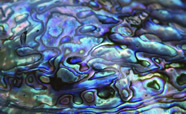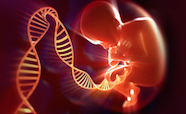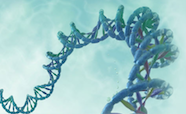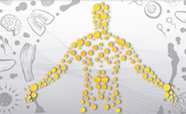A selection of University of Otago researchers examining the influence of genetics on child health, the role of genetics in specific conditions, and including wider ethical questions about reproduction.
Bioethics Centre
 Bioethics is the study of ethical issues arising within health care and the life sciences.
Bioethics is the study of ethical issues arising within health care and the life sciences.
Our Centre aims to examine the conventional and novel moral dilemmas arising from medical research, clinical settings, and advances brought about by life sciences and biotechnologies.
Reproductive ethics is one of the research themes we explore.
Email bioethics@otago.ac.nz
Web otago.ac.nz/bioethics
Centre for Translational Cancer Research—Te Aho Matatū
 Translational cancer research bridges the gap between laboratory-based science and treatment in the clinic. We now have sufficient knowledge in the fields of cancer biology, molecular biology, and immunology to make a significant impact on the treatment and management of cancer.
Translational cancer research bridges the gap between laboratory-based science and treatment in the clinic. We now have sufficient knowledge in the fields of cancer biology, molecular biology, and immunology to make a significant impact on the treatment and management of cancer.
We're bringing about rapid improvements in cancer outcomes by addressing defined clinical problems. Our research is accelerating the development and testing of new drugs and diagnostic tools that directly assist clinicians and their patients.
Our work covers:
- Drug development
- Immunotherapy
- Childhood cancers
- Diagnostic test design
- Personalised medicine
Email ctcr@otago.ac.nz
Web otago.ac.nz/ctcr
Clinical Genetics Group
 The Clinical Genetics Group study single gene disorders in children, with a particular emphasis on disorders that affect the development of the skeleton and the brain.
The Clinical Genetics Group study single gene disorders in children, with a particular emphasis on disorders that affect the development of the skeleton and the brain.
Single gene disorders are typically rare but in aggregate account for a sizeable fraction of morbidity in the community. The era of large-scale DNA sequencing has brought an unprecedented opportunity to define their cause and study their pathogenesis.
We have a particular interest in a group of disorders called the filaminopathies. These are caused by mutations in a family of genes encoding proteins called filamins. Somewhat unexpectedly, mutation in one of the filamin genes causes both disorders of brain development and bone development. Our evolving interest has led to a programme of research that studies the development of both of these organ systems.
Email stephen.robertson@otago.ac.nz
Web otago.ac.nz/clinical-genetics
Epilepsy Research Group
 Epilepsy is the most common serious brain disorder worldwide. It is characterised by seizures which can occur at any age. 1 in 20 people will have seizures at some stage in their lives. In New Zealand, there are 38,000 individuals living with epilepsy.
Epilepsy is the most common serious brain disorder worldwide. It is characterised by seizures which can occur at any age. 1 in 20 people will have seizures at some stage in their lives. In New Zealand, there are 38,000 individuals living with epilepsy.
Epilepsy is a group of disorders organised into syndromes defined by age of onset, types of seizures, EEG features and comorbidities. We now know that genetic abnormalities are the cause of the majority of epilepsy. Unfortunately, to date only a small percentage of the genes responsible for the epilepsies have been identified. These genes encode many different ion channel subunits and brain-expressed proteins.
Epilepsy Research Group aims to:
- Identify new and refine emerging epilepsy syndromes
- Elucidate the genetic architecture of the epilepsies
- Discover the genes that cause the epilepsies
- Work toward precision medicine with targeted therapies for epilepsies
Email epilepsy.research@otago.ac.nz
Web https://www.otago.ac.nz/epilepsy/index.html
Genetics Otago
 Genetics lies at the root of many human diseases. At Genetics Otago, we have a remarkable breadth of human genetics research studying both complex and single-gene diseases. As an example, researchers at the Cancer Genetics Laboratory are world-leaders in their field.
Genetics lies at the root of many human diseases. At Genetics Otago, we have a remarkable breadth of human genetics research studying both complex and single-gene diseases. As an example, researchers at the Cancer Genetics Laboratory are world-leaders in their field.
Our human developmental disease research provides an insight into how human embryos work, and how that is related to human health. We study both the genetics and epigenetics of human development and cell division.
Pharmocogenomics is another major area of research—this is a modern approach to understanding the side-effects of, and sensitivities to, drug treatments—by analysing the effect of a person's genes on their response to drugs.
Email go@otago.ac.nz
Web otago.ac.nz/genetics
Otago Genomics Facility
 We provide expertise and sequencing resources to New Zealand researchers and industry including:
We provide expertise and sequencing resources to New Zealand researchers and industry including:
- Project design and advice
- Illumina HiSeq sequencing
- Illumina MiSeq sequencing
- Nanostring nCounter Analysis System
The Otago Genomics Facility is an Illumina Propel-certified service provider for Illumina HiSeq 2500 and MiSeq sequencing platforms, and is also a Nanostring nCounter Analysis System core facility.
Email genomics@otago.ac.nz
Web otago.ac.nz/genomics
Reproduction, Genomics and Development Research Group
 The Reproduction, Genomics and Development Group, in the Department of Anatomy, is made up of a number of labs that explore different aspects of development: from fertilisation and the processes governing the very first cellular divisions, through to adulthood, and how problems that arise during early development and gestation may have effects on the health of individuals and populations.
The Reproduction, Genomics and Development Group, in the Department of Anatomy, is made up of a number of labs that explore different aspects of development: from fertilisation and the processes governing the very first cellular divisions, through to adulthood, and how problems that arise during early development and gestation may have effects on the health of individuals and populations.
Our group explores these questions in humans, model systems, and a host of unique and understudied animal taxa.
Email greg.anderson@otago.ac.nz
Web otago.ac.nz/anatomy/research/r-g-d
Research Infrastructure Centre
 Our Research Infrastructure Centre offers specialist expertise, technology and facilities in protein research, genomics, imaging, and biomedical research.
Our Research Infrastructure Centre offers specialist expertise, technology and facilities in protein research, genomics, imaging, and biomedical research.
We support optimum design and analysis of your research, and provide skill development opportunities.
Our academic leadership is of the highest calibre and we have extensively experienced and skilled staff.
Our services are available to researchers in institutions, industry, government and private companies.
Email ric.admin@otago.ac.nz
Web otago.ac.nz/healthsciences/research/ric
